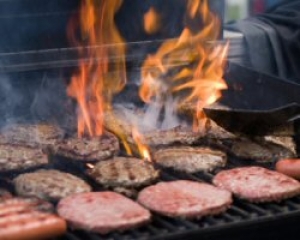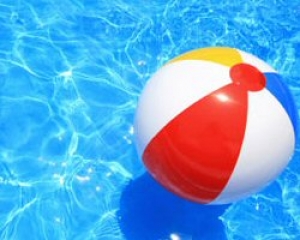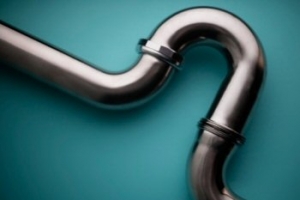 William M. Sparks 1945 - 2023
William M. Sparks 1945 - 2023
My father, William (Bill) Sparks, passed away sadly but comfortably Sunday morning, surrounded by his family. He was a kind and loving man with a heart of gold. There are so many who loved him and will feel this loss – in the business world and far beyond. He would say thank you to all of his small-business customer for their support, and he would wish everyone peace and happiness. I have run the William M. Sparks Insurance Agency for many years now, and I will continue to run it just as my father did and as he would want me to do. On behalf of my family, I thank you all for your kind words, well wishes and support at this time. --- Danielle Sparks
If you’re in the market for a home, then you’re certainly not alone since almost half of all home sales happen between April and June each year. That is why it’s known as the “homebuying season.”
If you’re a typical home buyer, you’ll have a lot of questions – from costs, fees and taxes to mortgage qualification. When you find the house that’s right for you, you’ll also need to think about homeowners insurance and how it will impact your ability to make an offer on that dream home.
View the video below to find out what insurance questions you’ll need to ask…
Feel free to contact any of our very capable and experienced agents at the William M. Sparks Insurance Agency here in Lutherville/Timonium, MD to discuss your insurance questions. We can help you review your current insurance policy and explore your options to be sure you have the best coverage and protection according to your circumstances.
 Is your student off to college this semester? Have you done an insurance review?
Is your student off to college this semester? Have you done an insurance review?
Can you believe that summer is coming to an end and it’s now back-to-school time once again? It’s the time of year when we notice more than ever the way our children are growing and how their lives are changing. So this makes it the perfect time of year to also evaluate your family’s auto insurance and homeowners insurance coverage. Is this the year when your teen goes to college? Will your son or daughter get a drivers license? Will you be replacing your vehicle to make room for school carpooling? Will you be adding an addition to your home to accommodate space for home schooling? Keep your children safe in the new school year— review your car and home insurance coverage this fall.
Car Insurance
- Before you decide on that new vehicle, check with your insurance agent to see how its purchase will affect your auto insurance rates. Also, you’ll want to discuss how carpooling impacts your coverage as well.
- Teen drivers can be expensive to insure, but don’t forget to check for a student discount. Typically, getting the discount requires that your child carry a good grade-point average, so you’ll need the details on that as well. In addition, if your teen passes a driver safety course, you might qualify for reduced car insurance rates.
- If your child in college, it’s possible that you might receive a further discount, provided they meet the requirements – typically attending school outside of a specific distance from home without a vehicle while away. Again, your insurance agent will know the details.
Home Insurance
- Perhaps home schooling is your plan, and you know you’ll need to expand your home to accommodate the space. There are many insurance questions to resolve before you move forward. For example, if your home is expanded and the property value increases, then how will this affect your homeowners insurance cost. Not to be forgotten, also, is the need for sufficient liability coverage if your home schooling will include others beyond your immediate family.
- If your college-bound teen will be living on campus, then most of his or her belongings will typically be covered – at least in part – by your homeowners insurance policy. This includes all those expensive items like a laptop, TV, bike, smartphone and other electronics, among others.
- If your college student will be living off campus while away at school, then it is likely that your homeowners insurance will not cover, and renters insurance will then be your answer. Renters insurance is typically very affordable, and a discussion with your insurance agent will let you know your options.
Home and Auto Insurance Tip
The start of another new school year can be an exciting time for your family. Giving yourself the peace of mind knowing that you’ve got the right insurance coverage can help you protect your assets as you invest in your child’s future. The first step to doing so is to meet with your insurance agent who can help you explore your options.
The William M. Sparks Insurance Agency located in Lutherville / Timonium, MD, is a full-service insurance agency offering auto/car insurance, homeowners insurance, business/commercial insurance and life insurance to all of Maryland (MD), Virginia (VA) and Pennsylvania (PA) since 1981. Our experienced insurance agents welcome your inquiries and are glad to discuss your coverage needs at any time.
Food cooked outdoors, especially on a propane or charcoal grill in the backyard has a special appeal. But grilling outdoors can be dangerous, even deadly, unless you take precautions.
According to the National Fire Protection Association, each year, U.S. fire departments responded to an average of 8800 home fires involving grills, hibachis or barbecues. Of these fires, about started on a courtyard, terrace or patio while 29 percent started on an exterior balcony or open porch.
Nevertheless, if you are like most Americans, you too enjoy summer grilling. So, the following are some of the most important safety tips to assure that your barbecue is risk-free, whether you do a gas or charcoal grilling.
Safety Tips for Successful Backyard Grilling
- Place your grill on a level surface at least ten feet away from all other objects including structures like your house, garage, etc.; and stay clear of landscaping and traffic areas.
- When grilling is complete, be sure to keep children and pets well away from the grill until it has completely cooled.
- Never grill in an enclosed space including homes, vehicles, tents, campers, garages, etc. This can be a deadly risk both for fire and carbon monoxide poisoning.
- Use only long-handled grilling tools and wear dry oven mitts that cover your forearm to avoid burns when cooking.
- After grilling with charcoal, soak the coals with water and store in a metal container for disposal.
- After cooking on a gas grill, turn off BOTH the grill and the propane bottle.
Need some help making the best meal ever on the grill?
Check out this one-stop site for your next outdoor get together.
MORE ON GRILLING SAFETY
- Learn the proper use and care of the gas grill (Video: National Fire Protection Association).
- Get the NFPA Grilling Safety Tip Sheet (PDF)
Regardless of our swimming abilities, many of us beat the heat in our backyard swimming pool as summer temperatures soar. It seems that taking advantage of a residential swimming pool is more popular than ever before. In fact, well over 8 million U. S. households owni a pool, according to the Association of Pool and Spa Professionals.
But all swimming pools – from the simplest inflatable wading pool to the most elaborate luxury in-ground variety – can present a danger, especially to children.
Swimming Pool Safety Tips
The following safety rules will prevent accidents and decrease your potential liability exposure:
- Empty wading pools completely after each use, and always store them upside-down to avoid collection of rain water.
- Install a fence at least 4 feet high around the entire pool area with a gate that latches and locks. Never leave furniture or other items close enough to the fence to allow children to climb over. Pool alarms and safety covers add extra protection.
- The powerful suction of a pool drain can trap a child under water. Cover your drain with a safety guard, tie up long hair before swimming, and teach children to stay away from drains and filters. In particular, teach them never to sit on a pool drain.
- Post emergency numbers and CPR instructions in the pool area. Store a first aid kit, a cordless water-resistant phone, reaching poles and ring buoys near the pool area to be used in case of emergency; and do not allow children to play with these items.
- Consider having older teens and adults take a course in basic first aid and CPR, and enroll your family’s non-swimmers in swimming lessons with a certified instructor. Anyone who is not a good swimmer should wear a U.S. Coast Guard approved life vest while in your pool.
- Adults should not swim alone, and children should never swim without an adult present and watching them constantly.
- Keep the pool area clear of glass items, electrical devices (radios, CD players, etc.), and obstacles that could cause a fall or other injury.
Insurance and Liability Issues
If you are planning to install a pool at your residence, it is important to consider the insurance implications as well as the safety issues. The Insurance Institute recommends the following:
- Installing a pool will also increase your insurance liability risk. So contact your insurance agent to be sure your homeowners policy provides enough additional liability coverage. If your pool will be costly, this may mean you will have to increase your coverage to protect your pool, should a storm or other disaster destroy or damage it.
- Contact your town or municipality since the definition of a pool which drives local building codes and safety standards will vary from town to town. You will want to have this information before you purchase the pool.
Every winter season, the pipes in your home are at risk of damage from freezing conditions. Low temperatures can cause your pipes to freeze, and in some cases burst. Encompass Insurance offers the following tips to safeguard your home before, during and after a pipe freezes.
Prevent Your Pipes From Freezing
- Disconnect all gardening hoses and install covers on all outside faucets.
- Keep your house temperature at 68 degrees or higher, even if you're leaving the house for an extended period of time.
- Open cabinet doors below sinks to allow heat from the home to circulate.
- Identify the location of the main water valve and the valve on your water heater. (Learning the location of these valves may come in handy during an emergency.)
- Wrap pipes nearest exterior walls and in crawl spaces with pipe insulation or with heating tape. This can prevent freezing, especially for interior pipes that run along outside walls.
- Close all windows near water pipes; cover or close open-air vents. Freezing temperatures combined with wind drafts can cause pipes to freeze more frequently.
- Heat your basement and consider weather sealing your windows.
- Insulate outside walls and unheated areas of your home.
- If you plan to be away from home for an extended period of time, shut off water supply valves to your washing machine.
Monitor Freezing Pipe Conditions
- Allow a faucet to drip slightly (lukewarm water) in order to minimize freezing.
- The first sign of freezing is reduced water flow from a faucet.
- Check your faucets for water flow and pressure before you go to sleep and again when you wake up.
- Check pipes around your water meter, in unheated areas, near exterior walls and in crawl spaces.
- These tend to be vulnerable to freezing conditions.
- Identify cold air drafts coming in from a flue or chimney chase and caulk gaps that are near pipes.
If a Pipe Freezes
- If a faucet or pipe inside your house freezes, you can thaw it using a good hair dryer. (For safety purposes, avoid operating a hair dryer around standing water.)
- To thaw a frozen pipe, heat water on the stove, soak towels in the hot water and wrap them around cold sections of the pipes.
- When thawing a pipe, start thawing it nearest to the faucet. Make sure the faucet is turned on so that melted water can drip out.
If a Pipe Bursts
- Shut off water at the main valve.
- If the break is in a hot water pipe, the valve on top of the water heater should be closed.
- Call a plumber. Keep an emergency number nearby for quick access.
Tag Cloud

|
|
 |






